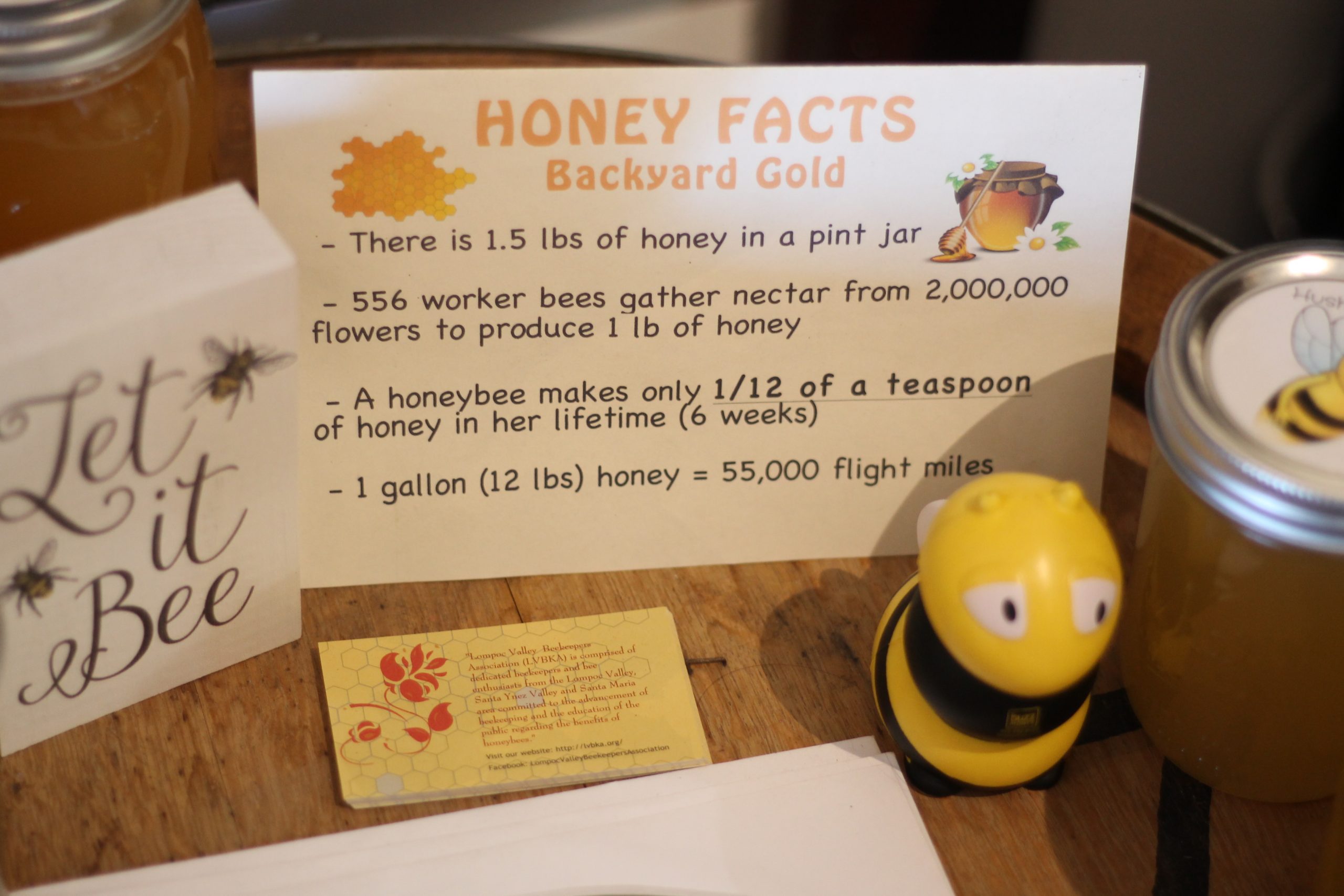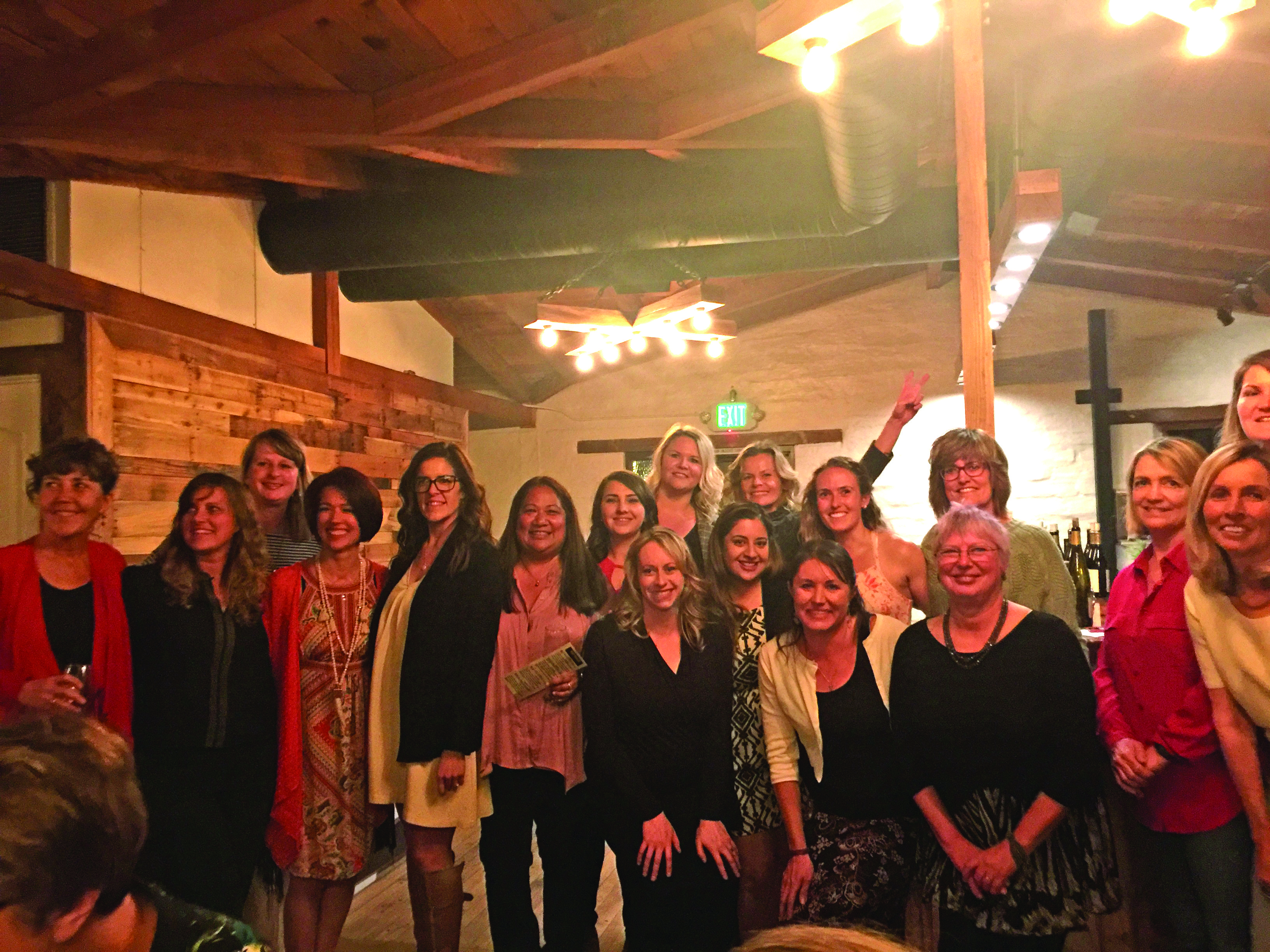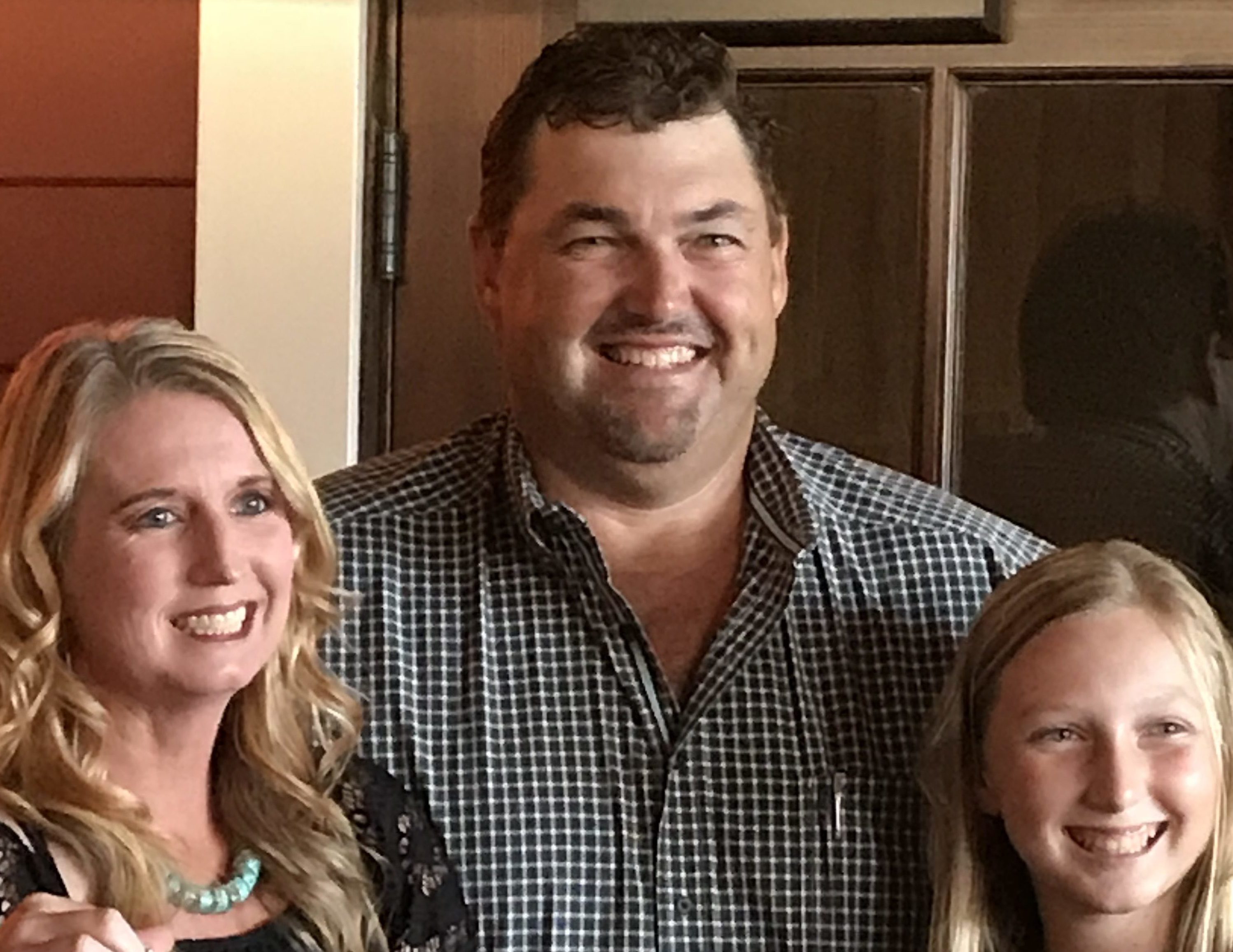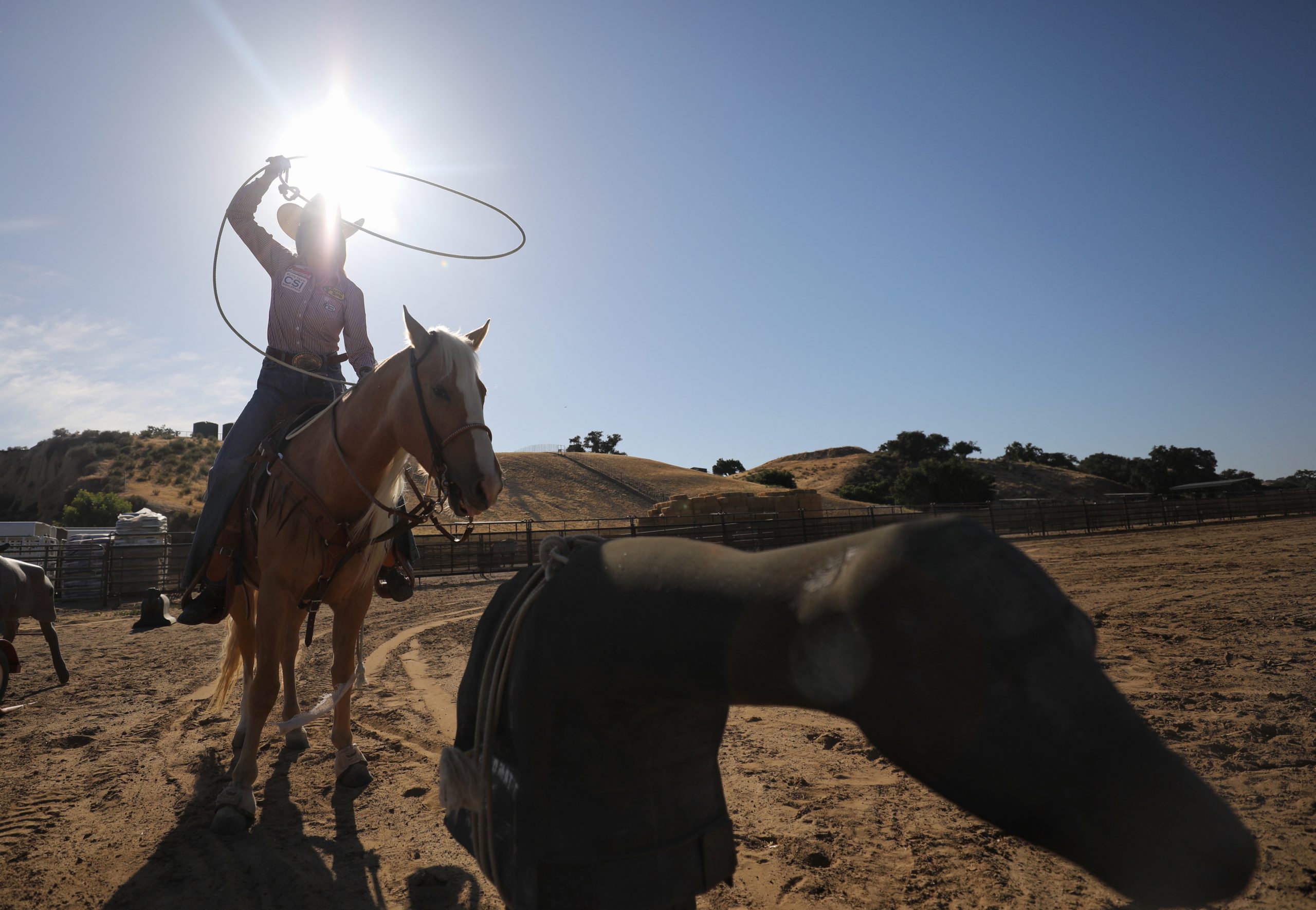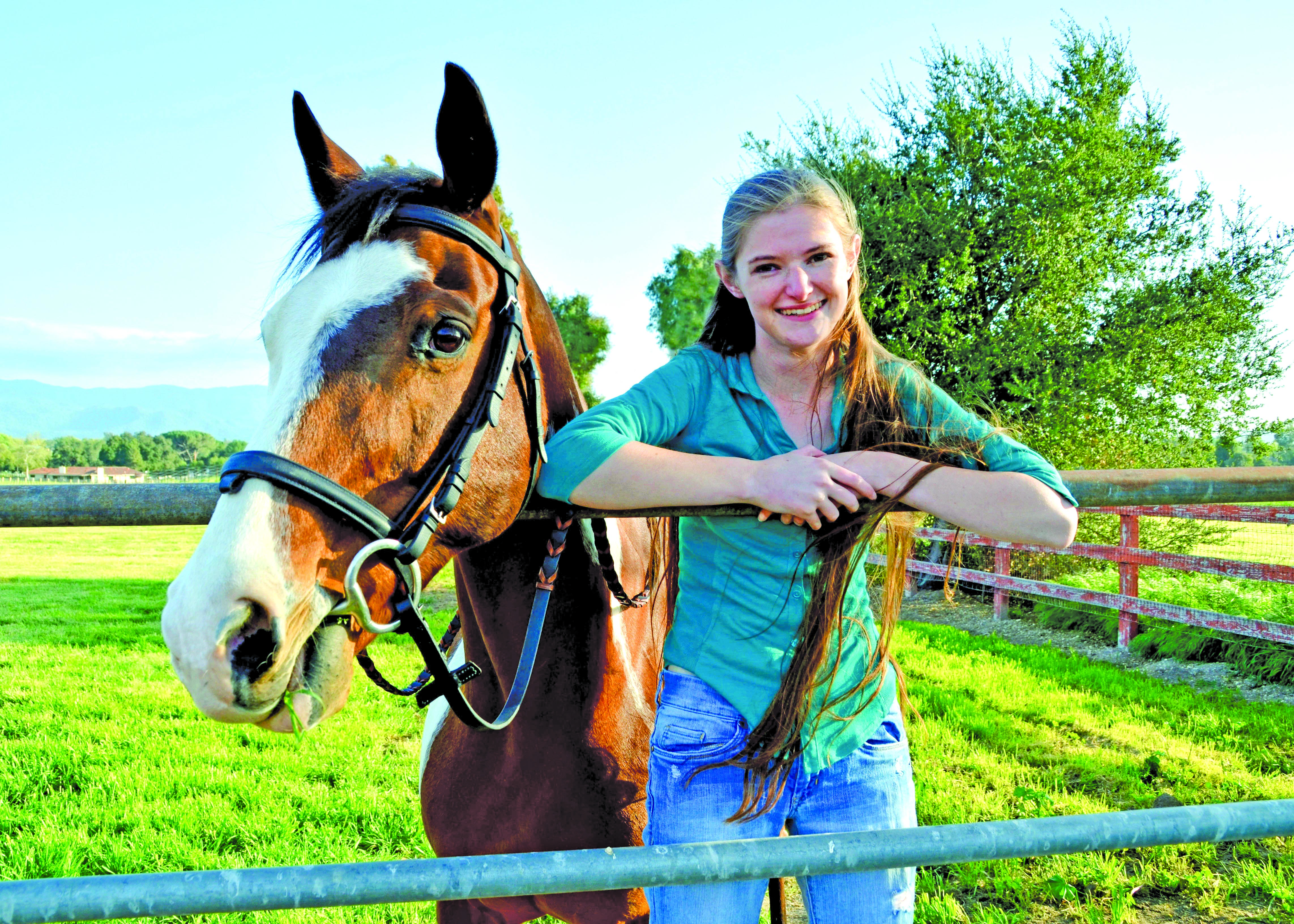By Raiza Giorgi
publisher@santaynezvalleystar.com
In a region that grows many berries, orchard fruits and row crops, bees are essential for pollination.
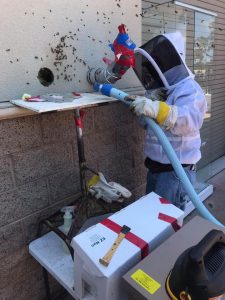
The Lompoc Valley Beekeepers Association is a volunteer group that helps rescue bees from various locations, including the Santa Ynez Valley.
Kate Griffith, a local beekeeper and founding member of the Lompoc Valley Beekeepers Association, says she has come often to calls for bee rescues in the Santa Ynez Valley, and encourages anyone interested to come to a meeting to learn more.
“Bees love meters in the ground for some reason, and we have relocated many hives from the valley. One hive in particular became ‘spicy,’ as I’d like to say, and it was a bit of a challenge to move them,” Griffith laughed.
Griffith hosts the LVBKA every month at her wine-tasting room at Flying Goat Cellars in Lompoc. Their organization brings together passionate beekeepers, who are unpaid volunteers who remove swarms as a community service.
“I found this hobby that really keeps me grounded. I think I am a pretty high energy person to begin with, but when you’re around the bees you have to be aware of your body language,” Griffith said.
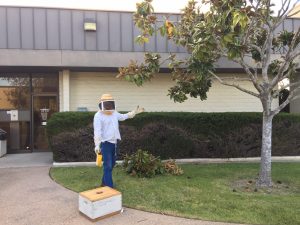
Lompoc Valley Beekeepers Association founder Kate Griffith helped with removing a hive from a branch of Coast Hills Federal Credit Union, where she also serves on the board.
CoastHills Credit Union members recently saw a giant clump of bees blocking their path from the post office to the Credit Union’s entry door on Vandenberg Air Force Base.
“They couldn’t even walk through without the fear of being stung,” said member services officer Marshall Stevens.
That’s when CoastHills branch staff reached out to Griffith, one of their board members. The Beekeepers are not only answering emergency calls directly from citizens, they also support police and fire agencies referring calls they receive from the public.

Photo from JD Scroggin
The LVBKA is also working to spread awareness of bees and how important they are to the agriculture in our region and food security for the entire planet.
“Be mindful of the chemicals you are spraying, whether they are pesticides or herbicides,” Griffith said. “Don’t use systemic rose and flower care. People want the quick and easy, but the systemics put poison into the plant, the bees go and enjoy the pollen in the rose and then, boom.”
Griffith said in the past eight years they have hosted too many demonstrations to count, but she still loves sharing information with people of all ages.
“We get a lot of people from the valley that come to our meetings to learn more about bees. We want people from all over to feel welcome and get appreciation for these creatures,” she said.
Representatives have done traveling presentations of demonstration hives at local schools and parks. The group is also welcoming to novice bee hobbyists looking to grow their expertise. Dues are $10 a year and cover an entire household.
To learn more, to schedule a presentation or to report a bee swarm, visit lvbka.org.

